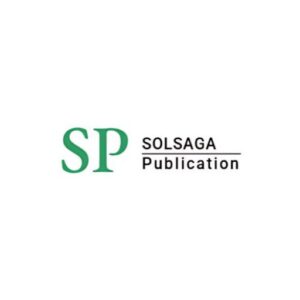Artificial Intelligence (AI) has rapidly transformed industries, making processes more efficient, reducing human effort, and unlocking new possibilities. However, as AI continues to evolve, concerns about its impact on creativity, employment, and ethics are growing. Are we heading toward a future where AI dominates industries at the cost of human ingenuity and job security? Let’s explore the key aspects of this dilemma.
The Creativity Conundrum: Is AI Replacing Human Ingenuity?
AI-powered tools like ChatGPT, Midjourney, and DALL·E are revolutionizing creative fields, producing content, generating art, and even composing music. But does AI-generated work hold the same emotional depth and authenticity as human-created pieces?
- Efficiency vs. Authenticity: AI can create art and literature within seconds, but does it truly capture human emotions and experiences?
- Dependency on AI: As businesses and individuals increasingly rely on AI tools, the risk of diminishing human creativity grows. Are we fostering innovation or just optimizing automation?
- Blurred Ownership: Who owns AI-generated content? The ethical debate over copyright and intellectual property rights is intensifying as AI continues to reshape creative fields.
Employment and Automation: A Threat to Job Security?
AI is automating tasks across multiple industries, raising fears of job displacement.
- Industries at Risk: Jobs in manufacturing, customer service, journalism, and even coding are now susceptible to automation. Companies seek efficiency, but at what cost to workers?
- The Skills Gap: As AI adoption increases, traditional roles are evolving. Will workers be able to transition into AI-augmented jobs, or will many be left behind?
- The Gig Economy Impact: Freelancers, artists, and content creators increasingly face competition from AI-generated alternatives, potentially devaluing human-led services.
The Ethical and Regulatory Challenges
With great power comes great responsibility, and AI is no exception. Ethical concerns around AI usage are mounting.
- Bias in AI: AI models learn from existing data, which can lead to biased results, reinforcing societal inequalities.
- Data Privacy Concerns: AI systems often require massive amounts of data, raising concerns about user privacy and data security.
- Regulatory Frameworks: Governments and institutions are grappling with how to regulate AI without stifling innovation. Striking this balance is crucial for a fair and sustainable AI-driven future.
Balancing AI’s Benefits with Human-Centric Innovation
While AI presents challenges, it also offers opportunities to enhance human capabilities rather than replace them.
- Human-AI Collaboration: The future may not be AI vs. humans but rather AI assisting humans in improving productivity and innovation.
- New Career Opportunities: AI is creating demand for roles like AI ethics specialists, prompt engineers, and data analysts.
- Personalized AI Assistance: AI can help professionals by automating repetitive tasks, freeing time for strategic and creative endeavors.
A Crossroad of Progress and Caution
AI is undoubtedly shaping the future, but its widespread adoption requires thoughtful consideration. While it enhances efficiency and innovation, we must ensure it does not diminish human creativity, exacerbate unemployment, or introduce ethical dilemmas that go unregulated.
Society must engage in critical discussions, enforce fair policies, and promote responsible AI development to create a future where AI and human ingenuity thrive together.
What’s your take? Is AI a revolutionary force or a disruptive threat? Share your thoughts below.

